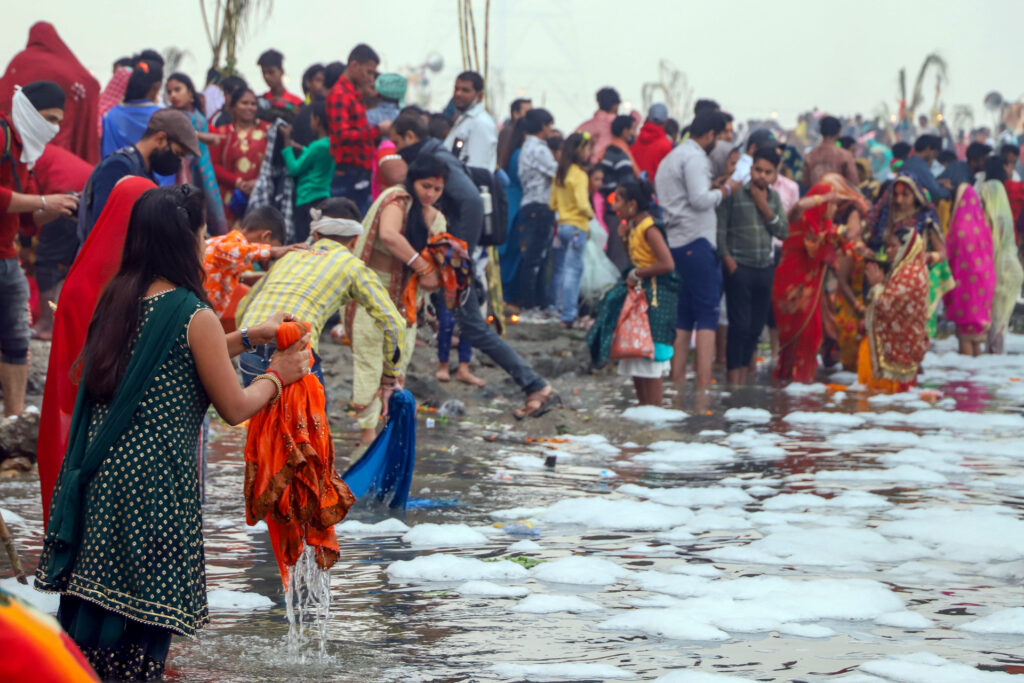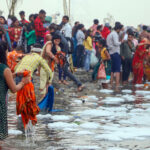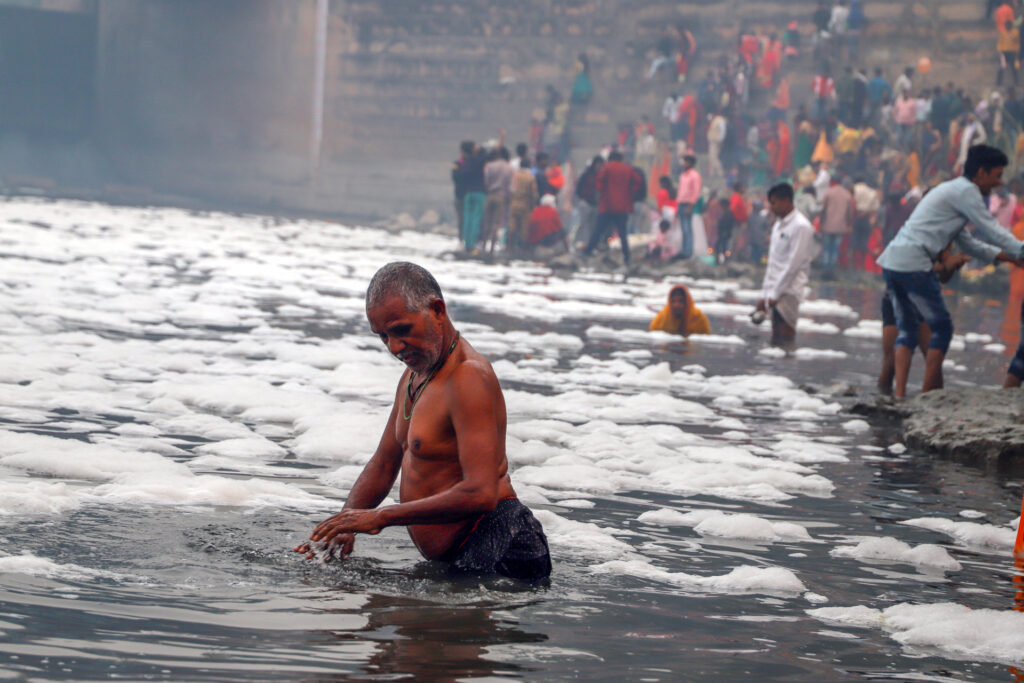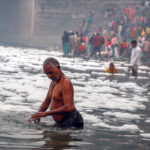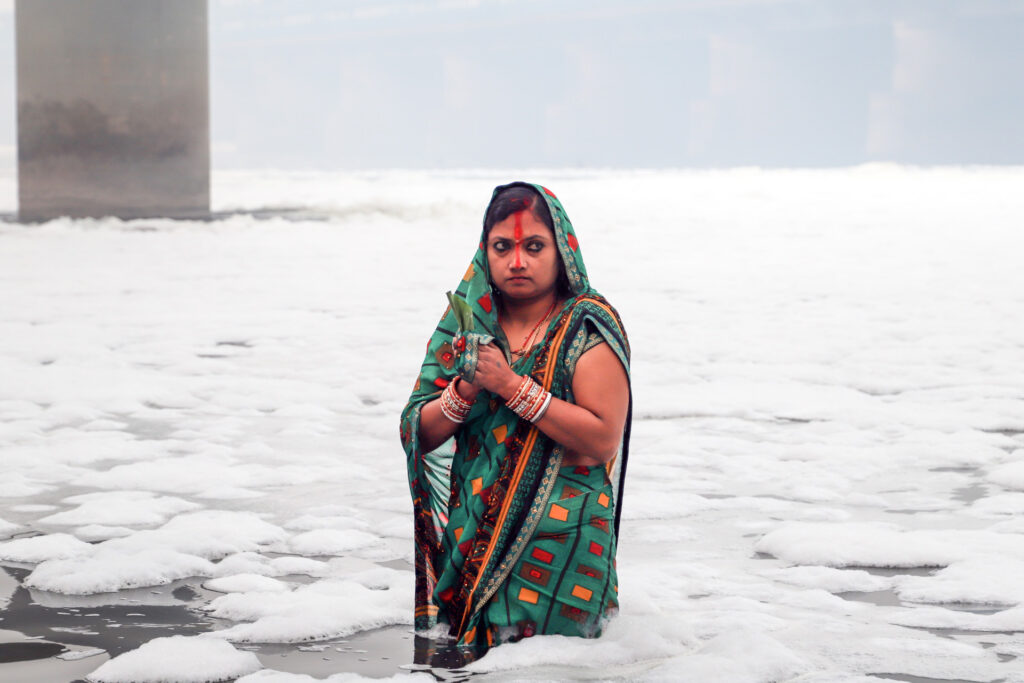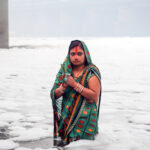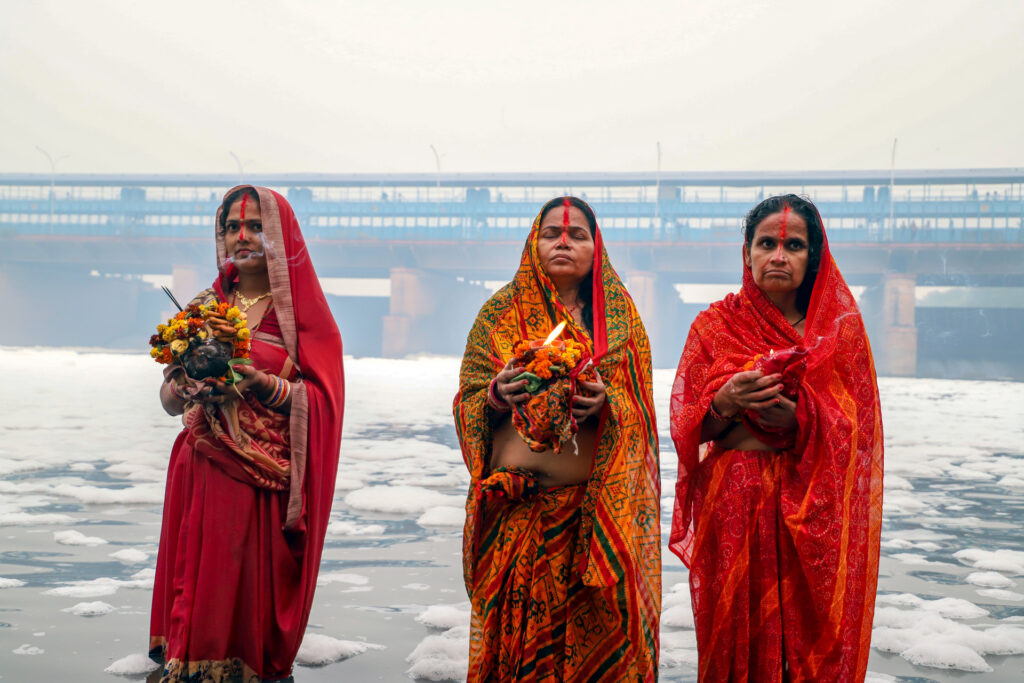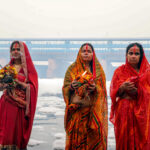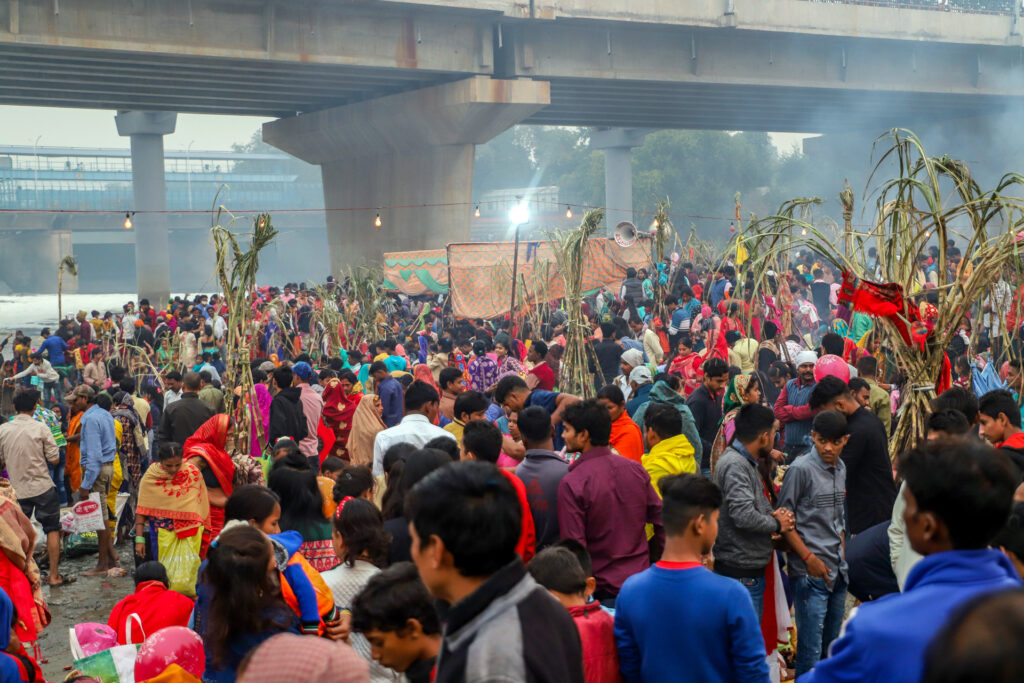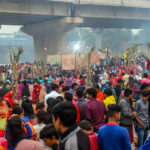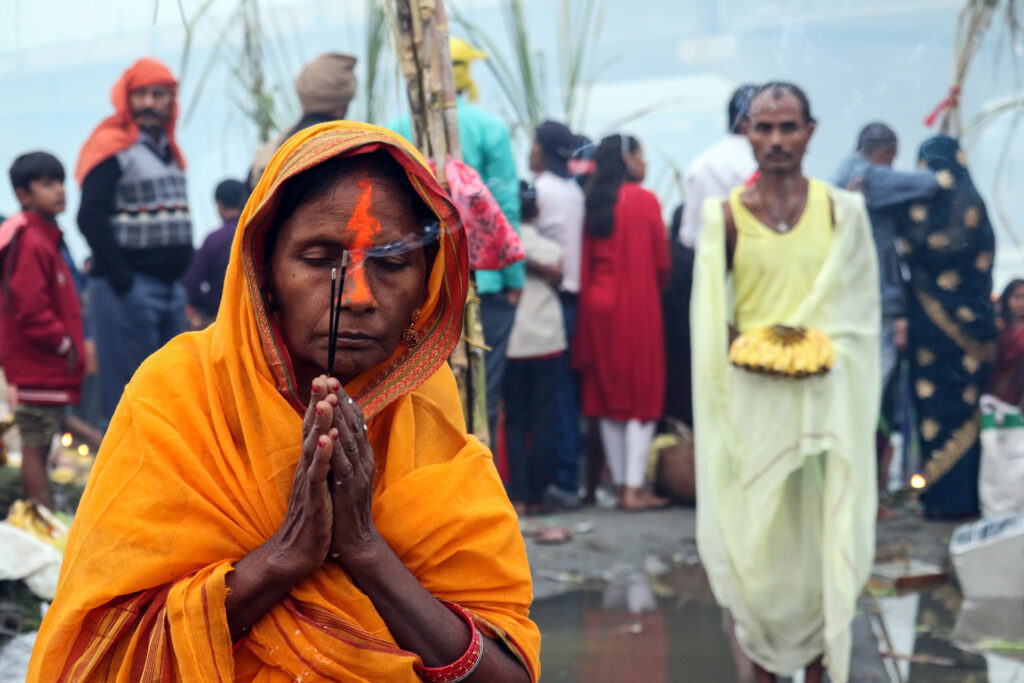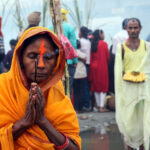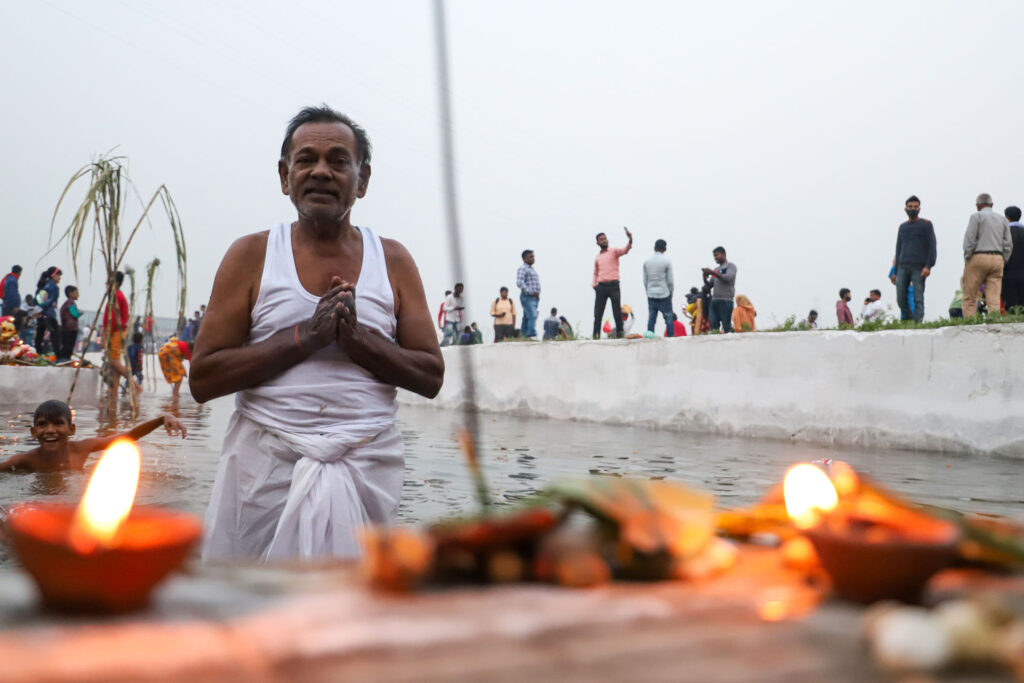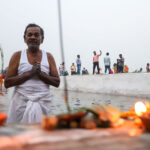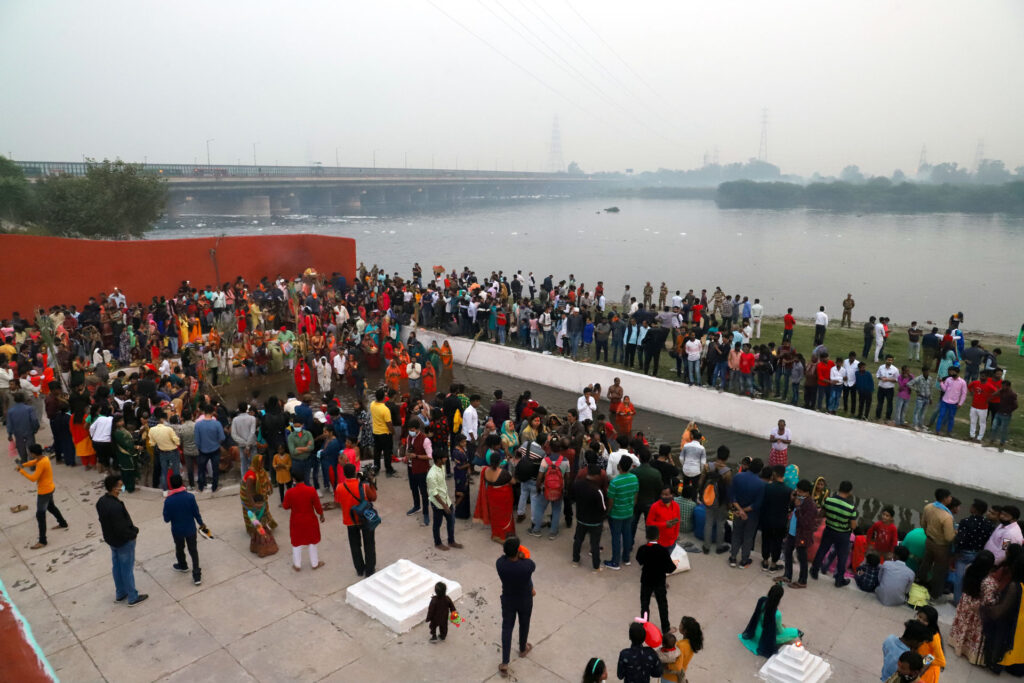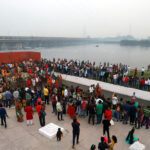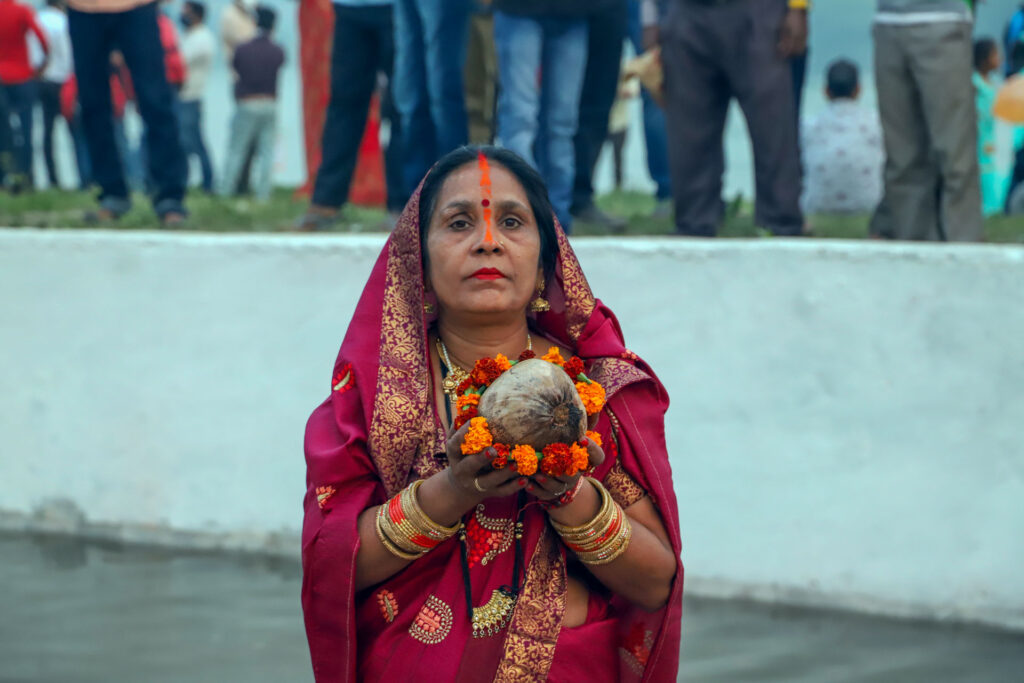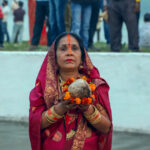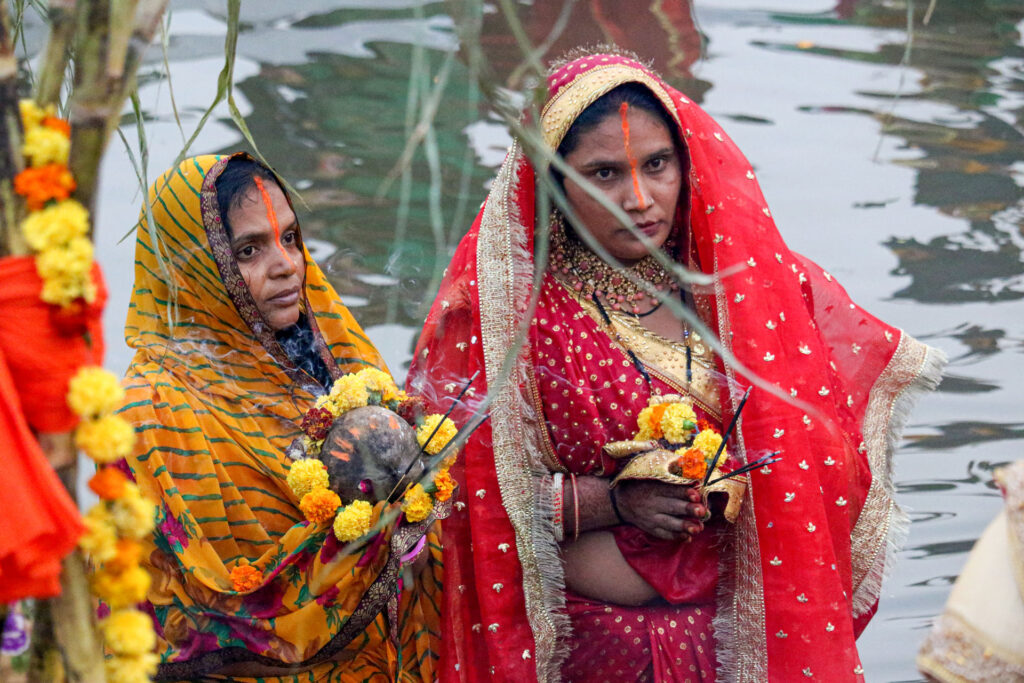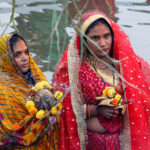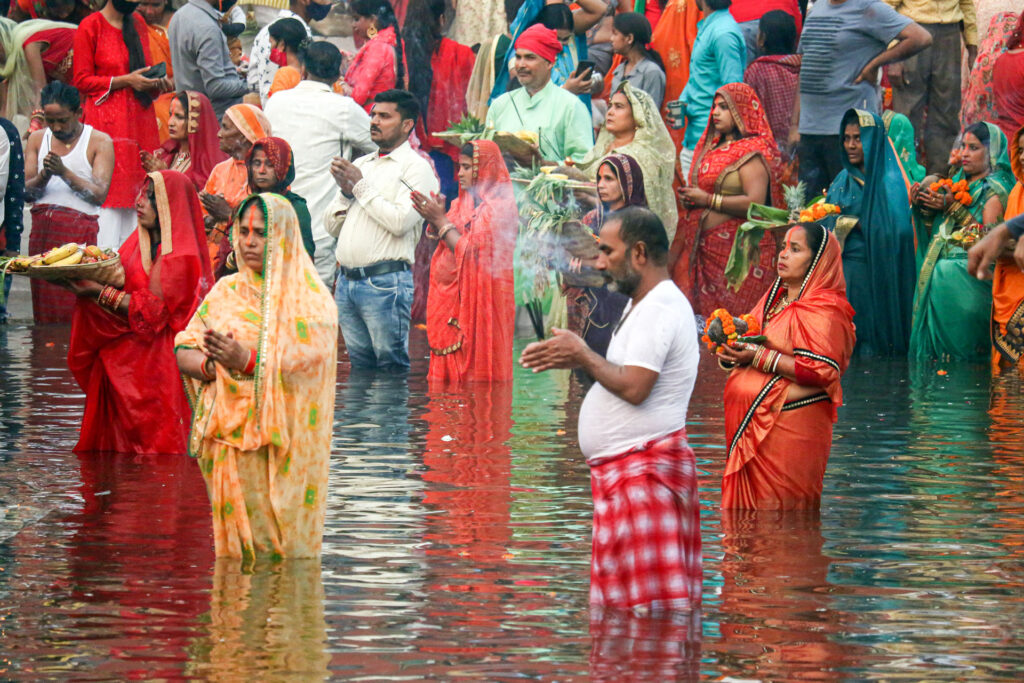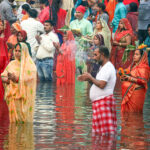Thousands mark Chhath Puja 2021 in Delhi
It is still dark, with the dense, toxic smog that has come to symbolise New Delhi each winter, enveloping in a tight embrace the entire city and the Yamuna River, already covered with a dense toxic foam. As the city lights struggle to penetrate the poisonous air and even before the first signs of a day-break struggle to get through, thousands of people have already gathered by the riverside at various spots to mark a special occasion – the Chhath Puja, a festival that is cherished mainly by the people in the large parts of Uttar Pradesh, Bihar, Jharkhand as well as southern Nepal.
The festival that lasts four days is marked by special prayers offered to the Sun God, ideally from a river and the Yamuna has been the spot where the people celebrating the Chhath Puja gather in New Delhi each year. However, since 2020, due to the Covid-19 pandemic, there have been restrictions imposed on gathering of large number of people and hence people have been asked to offer their prayers in smaller batches, preferably in specially constructed small tanks by the river or other water bodies in the capital.
To prevent a large crowd from amassing, police has been deployed across the city at various ghats of the river where the devotees have usually gathered to offer prayers. But this year, the devotees have more than the police to contend with, when approaching the Yamuna as the river has been covered with a highly noxious foam for the past several days, forcing the government to have pushed the foam away from the banks to create a small space where prayers could be offered.
The dichotomy in approach of the Delhi government as well as that of neighbouring Uttar Pradesh becomes evident at Kalindi Kunj, in south Delhi, where on the riverbank that is in Delhi, the government has banned access to the river, citing pandemic and pollution concerns, but on the opposite bank, the Uttar Pradesh government, facing an election in under three months, has made elaborate arrangements to allow the devotees to go the river for the rituals.
Among the huge number of devotees thronging the ghat on Thursday was Mahendra Shah, a resident of Noida, but who hails from Madhubani district in Bihar. Shah says that he has been visiting the ghat every year for the Chhath Puja and that he was satisfied with the arrangements for the puja made this year, despite the pollution in the river. “Earlier, it was much dirtier. But as they released some water from the barrage, the river has become much cleaner, allowing the people to bathe in it as per our traditions,” Shah tells Media India Group.
Shah is not alone in his beliefs as another devotee, Sanjeev Kumar Mishra says that he is very satisfied with the arrangements made by the Uttar Pradesh government. “Last year, due to the coronavirus, we could not offer prayers here, but this year the government has made very good arrangements for us, including for our safety,” Mishra tells Media India Group.
Mishra says he and other devotees remain unmindful of the pollution in the river and other challenges as Chhath is a very important festival for which they wait all year round for it to come and despite all problems, offering prayers and following the traditions properly is primordial for all the believers. Shah says that the faith overcomes all other issues that the devotee or the country may face.
“Of course, the river does get polluted as people bathe and offer prayers. We have also seen it in our villages also where the ponds become dirty after the festival. But the government should take care of it and make efforts to keep the rivers clean. However, the pollution or the cold does not matter because the blessings of Chhathi Mayya (Mother Goddess) are with the devotees and nothing happens to them even though they stand for over two hours in the cold and dirty water,” Shah adds.
All along the river across the city, at various points special structures have been set up for devotees such as this spot near ITO Ghat, close to the Income Tax Office in the capital. Devotees gather here, armed with their offerings for the Gods – the Sun and the River and offer prayers as the day breaks and the Sun rises.
With assembly elections in Uttar Pradesh as well as local elections in New Delhi, politicians of various hues – from chief minister Arvind Kejriwal to BJP MP from North East Delhi Manoj Tiwari – gathered to participate in the festival and win favours with the voters. And not so surprisingly, in their search for votes, the politicians themselves took the lead in violating all the norms in place – be it the pandemic-related social distancing or masking or the key issue of keeping the city’s water bodies from dying a premature toxic death.
The devotees, unmindful of all these challenges and suitors, came with their faith and belief, offered the prayers and went back home, happy to have been able to follow their traditions, despite the numerous hurdles in their way.

